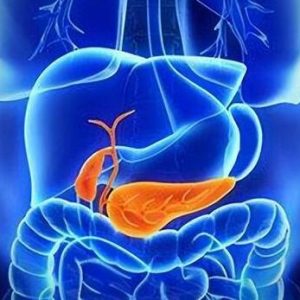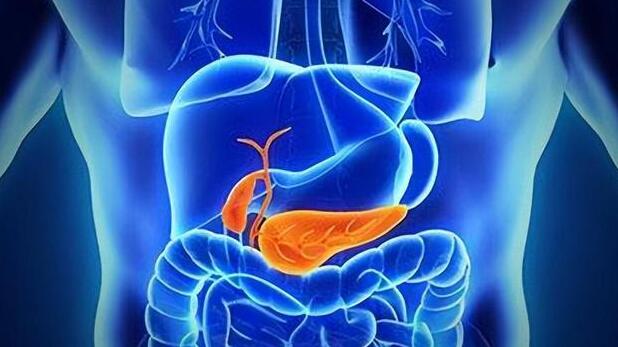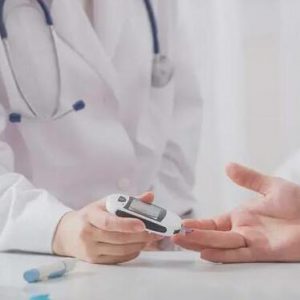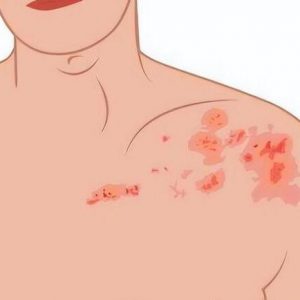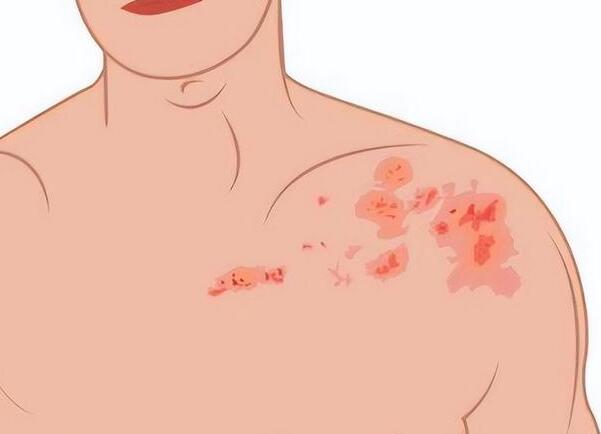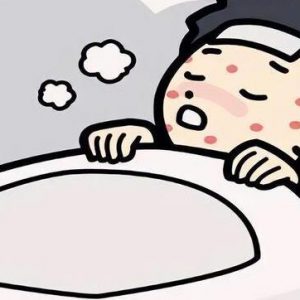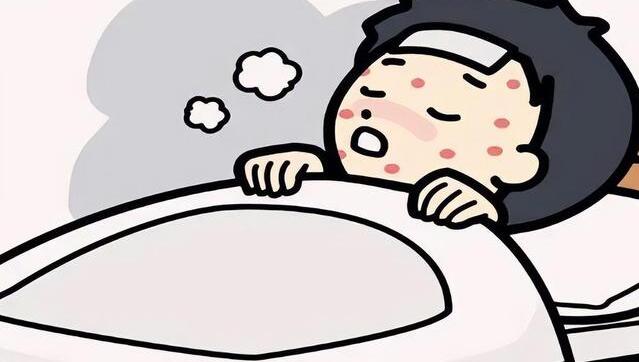A thyroid nodule is an abnormal growth of cell clusters within the thyroid gland, which can be solid, fluid-filled, or a combination of both. The size of these nodules can range from millimeters to centimeters, and they can occur singularly or multiple times. These growths can be either benign or malignant:
Benign thyroid nodules include:
- Nodular goiter: A nodule formed due to iodine intake imbalance or other causes leading to thyroid tissue hyperplasia.
- Thyroid adenoma: A tumor formed by the proliferation of thyroid follicular epithelial cells, usually with a complete capsule and slow growth.
- Thyroid cyst: A cystic structure containing liquid.
- Papillary thyroid cancer: The most common type of malignant thyroid tumor, which, despite its relatively low-grade malignancy, requires timely treatment.
- Follicular thyroid cancer and medullary carcinoma: Less common types of thyroid cancer.
Malignant (cancerous) thyroid nodules primarily include:

Most nodules are benign, but about 5% may be cancerous.
Causes of thyroid nodules can include:
- Insufficient or excessive iodine intake: Iodine is crucial for synthesizing thyroid hormones, and imbalanced intake may lead to thyroid dysfunction and potentially nodule formation.
- Autoimmune diseases: Conditions like Hashimoto’s thyroiditis and Graves’ disease can cause thyroid tissue damage and potentially lead to nodule development.
- Genetic factors: A family history of thyroid nodules or cancer may increase the risk of developing thyroid nodules.
- Radiation exposure: Past radiation therapy or living/working in environments with radiation, especially during childhood, can elevate the risk of thyroid nodules.
- Chronic thyroiditis: Long-term inflammation of the thyroid can lead to tissue changes and nodule development.
- Cysts: Fluid-filled sacs within the thyroid, often benign, but still considered a type of nodule.
- Thyroid adenomas: Benign tumors that may form within the thyroid and sometimes secrete excessive thyroid hormones.
- Thyroid cancer: Most thyroid nodules are benign, but some may be malignant, i.e., thyroid cancer.
- Age factor: The likelihood of developing thyroid nodules increases with age.
- Gender influence: Women are more prone to thyroid nodules than men.
- Nutritional deficiencies: For example, selenium deficiency may be associated with the development of thyroid diseases.
- Hormonal changes: Hormonal shifts during pregnancy and menopause are also thought to relate to the development of thyroid nodules.
Many thyroid nodules are asymptomatic or found incidentally during exams like neck ultrasounds. However, symptoms may appear if nodules grow large or numerous:
- Neck mass: A lump visible or palpable in the front of the neck is the most obvious sign of a thyroid nodule.
- Throat discomfort: Feelings of a foreign body in the throat, swallowing difficulties, or pain during swallowing.
- Breathing difficulties: Large nodules can press on the trachea, making breathing difficult.
- Hoarseness: Pressure on surrounding tissues, like the laryngeal nerves, can alter voice sounds.
- Neck pain: Sometimes, nodules can cause pain in the neck or ear area.
- Coughing: Rarely, a nodule might stimulate the throat, causing persistent coughing.
- Thyroid dysfunction: While most thyroid nodules don’t affect thyroid function, some “hot nodules” (producing thyroid hormones) may cause hyperthyroidism, characterized by palpitations, weight loss, anxiety, heat intolerance, etc.
If any symptoms are present or there are concerns, further evaluation and examination by a healthcare professional should be sought.
Screening for thyroid nodules typically includes:
- Self-examination: Regularly check the neck for any unusual lumps or swellings. This can be done in front of a mirror, tilting the head back while drinking water to observe for any protrusions in the neck.
- Medical examination: A doctor may find nodules during a neck exam, feeling for hard masses or swelling with their fingers.
- Blood tests: Testing thyroid function by measuring thyroid hormone (T4) and thyrotropin (TSH) levels to assess whether the thyroid is working normally.
- Ultrasound examination: A non-invasive imaging method providing detailed images of the thyroid’s size, shape, and nodules. It helps distinguish between cystic and solid nodules and guides fine-needle aspiration biopsy.
- Fine-needle aspiration biopsy (FNA): If ultrasound detects suspicious nodules, FNA may be recommended to obtain thyroid tissue samples for cytological examination to rule out cancer.
- Additional imaging techniques: Advanced imaging methods like CT scans, MRI, or nuclear scintigraphy may be used if necessary for further evaluation.
- Genetic testing: If there’s a known hereditary thyroid disorder in the family or if the nodule has suspicious cytological features, genetic or molecular testing may be required.
Regular screening for thyroid nodules, especially for high-risk groups (such as those with a family history of thyroid disorders or past radiation therapy to the neck), is essential. Early detection aids in managing potential complications.
Treatment options for thyroid nodules include:
- Observation and wait: If nodules are small, asymptomatic, and show no signs of malignancy, doctors may recommend regular monitoring without immediate intervention.
- Thyroid hormone suppression therapy: Doctors may prescribe thyroid hormone medications like levothyroxine to reduce TSH levels and suppress further nodule growth, given that high TSH levels may stimulate growth.
- Radioactive iodine treatment: Often used for functionally overactive nodules or multinodular goiters.
- Alcohol ablation: Mainly for cystic nodules, where alcohol is injected under ultrasound guidance to shrink them.
- Surgery: Suitable for large nodules causing significant pressure symptoms, suspected malignancy, or confirmed thyroid cancer. Partial or total thyroidectomy may be performed based on the situation.
- Non-invasive thermal ablation therapies: Like radiofrequency ablation (RFA) or laser thermotherapy, which use heat to destroy nodule tissue, typically performed under local anesthesia.
- Fine-needle aspiration biopsy (FNA): Although primarily diagnostic, FNA can also treat cystic nodules by extracting cyst fluid.
Before deciding on a treatment plan, thorough assessment is crucial, including determining the nodule’s benign or malignant risk. Doctors generally decide on the best treatment strategy based on a detailed medical history, physical exam, lab test results, and imaging findings. Specialist consultation with endocrinologists or surgeons may also be advised.
Preventive measures for thyroid nodules include:
- Adequate iodine intake: Ensure moderate iodine levels in the diet; both low and high intakes may increase the risk of thyroid nodules. Seafood and iodized salt are rich dietary sources of iodine.
- Healthy lifestyle: Smoking has been linked to thyroid disorders, so quitting smoking may help reduce the risk of nodules. Maintaining a healthy weight and regular exercise also contribute to overall endocrine system health.
- Avoid radiation exposure: Use caution with radiation, especially during childhood and adolescence, as excessive exposure can increase the risk of thyroid nodules and cancer.
- Regular check-ups: Especially if you have a family history or other risk factors for thyroid disorders, early detection of abnormalities can be achieved through regular check-ups.
- Balanced nutrition: A balanced diet supports overall health and may help prevent thyroid issues. Ensure your diet includes enough trace elements and vitamins like selenium, zinc, and iron, which are crucial for thyroid health.
- Stress management: Prolonged stress can impact endocrine system health, including thyroid function. Practice stress reduction techniques like meditation, yoga, and other relaxation methods.
- Avoiding certain drugs’ potential impacts: If you need medication that might affect thyroid function, consult your doctor for possible alternatives.
- Monitoring thyroid function: If signs of thyroid dysfunction appear, such as chilliness, fatigue, weight changes, or mood swings, seek medical advice and conduct thyroid function tests promptly.
Even with all preventive measures, thyroid nodules can still occur. If you have concerns about your thyroid health, it’s best to consult a healthcare provider for personalized advice.
